
Ian A Wright
Associate Professor in Environmental Science, Western Sydney University
I am a science communicator and am employed as an associate professor in Western Sydney University's School of Science. I teach classes in water science and management, environmental planning and environmental regulation across several degree programs.
Prior to WSU, I worked as a scientist in the urban water industry, mainly at Sydney Water. My science interests include freshwater ecology, water chemistry and water pollution (science and management).
My research interests include urban water issues, contamination from concrete materials and impacts of mining on streams and rivers. I have provided independent expert testimonies for environmental science matters for the NSW Land & Environment Court, and also for mining development proposals being considered through the planning system.
I'm an enthusiastic participant in art & science and community engagement activities associated with water and I often provide expert commentary on water issues in the media. I'm fortunate to visit primary and secondary schools, on behalf of the University, to talk to classes about water.
Less ![]()

Ian A. Wright
Associate Professor in Environmental Science, Western Sydney University
I am a science communicator and am employed as an associate professor in Western Sydney University's School of Science. I teach classes in water science and management, environmental planning and environmental regulation across several degree programs.
Prior to WSU, I worked as a scientist in the urban water industry, mainly at Sydney Water. My science interests include freshwater ecology, water chemistry and water pollution (science and management).
My research interests include urban water issues, contamination from concrete materials and impacts of mining on streams and rivers. I have provided independent expert testimonies for environmental science matters for the NSW Land & Environment Court, and also for mining development proposals being considered through the planning system.
I'm an enthusiastic participant in art & science and community engagement activities associated with water and I often provide expert commentary on water issues in the media. I'm fortunate to visit primary and secondary schools, on behalf of the University, to talk to classes about water.
Less ![]()
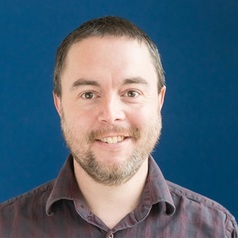
Ian G. McCarthy
Professor of Theoretical Astrophysics, Liverpool John Moores University
I am a theoretical astrophysicist interested in:
-Massive galaxy groups and clusters
-Galaxy formation and evolution
-Cosmology
Less ![]()
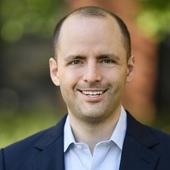
Ian H. Stanley
Assistant Professor of Emergency Medicine & Clinical Psychologist, University of Colorado Anschutz Medical Campus
Less ![]()
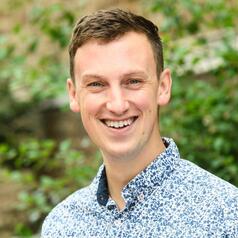
Ian N. Mills
Visiting Assistant Professor of Classics and Religious Studies, Hamilton College
Ian N. Mills earned a Ph.D. in religious studies from Duke University. His research includes the production, transmission, and reception of pluriform narrative traditions in antiquity. His current book project, Rewriting the Gospel, explores early Christian appropriations of Hellenistic literary conventions for describing and evaluating different versions of the same story. Mills is also the co-host of the New Testament Review, a podcast dedicated to making important works of scholarship available to the wider public.
Less ![]()
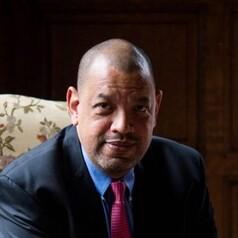
Ian Sue Wing1
Professor of Earth and Environment, Boston University
Ian Sue Wing is Professor in the Department of Earth & Environment at Boston University. He conducts research and teaching on the economic analysis of energy and environmental policy, with an emphasis on climate change and computational general equilibrium (CGE) analysis of economic adjustment to policy and natural environmental shocks. His current research focuses on characterizing the broader economic consequences of climate change impacts in a variety of areas (energy systems, agriculture and forestry, and human health), assessing the implications for society's capacity to mitigate future emissions of greenhouse gases, and simulating the regional economic impacts of natural disasters. Much of this work involves articulating the structural linkages between CGE models and econometric models of climate impacts, or bottom-up science- or engineering-based process simulations of energy systems, agro-ecosystems, and natural hazards. He has been supported by grants from the California Energy Commission, the U.S. Department of Energy's Office of Science, the U.S. Environmental Protection Agency, the U.S. Geological Survey, the National Institute of Food and Agriculture and the National Science Foundation. He has been a member of advisory and review panels for the DOE, the Environmental Protection Agency, the National Research Council and NSF, and served as a contributing author to the IPCC AR5 and the Third National Climate Assessment.
Less ![]()
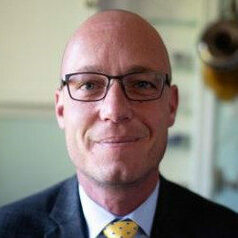
Ian T. Adams
Assistant Professor of Criminology and Criminal Justice, University of South Carolina
Ian T. Adams is assistant professor of criminology and criminal justice at the University of South Carolina. His research includes work on policing, body-worn cameras and police policy evaluation.
Less ![]()
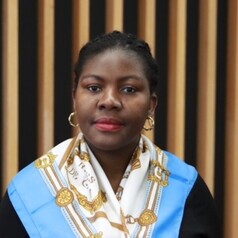
Ibiyemi Omeihe
Lecturer in Enterprise, School of Business and Creative Industries, University of the West of Scotland
As the Programme Leader of MSc Logistics and Supply Chain Management at the University of the West of Scotland, I am committed to nurturing academic excellence and professional development within the field. With a research focus on leadership, entrepreneurship, innovation, and logistics and supply chain management, I bring a range of expertise to my role. My experience spans both academia and industry, where I have engaged in research, and teaching, aimed at addressing contemporary challenges.
Less ![]()
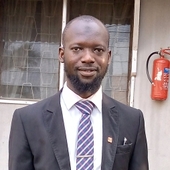
Ibraheem Adesina Kukoyi
Lecturer, Department of Hospitality and Tourism, Federal University of Agriculture, Abeokuta
Less ![]()
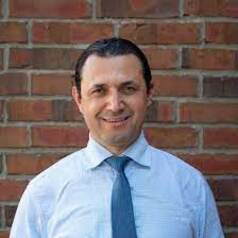
Ibrahim Kocaman
Assistant Professor, Embry-Riddle Aeronautical University
Ibrahim Kocaman is an Assistant Professor at Embry-Riddle Aeronautical University's Department of Security Studies and International Affairs. His research interests are civil conflict, civil-military relations, interstate conflict, and political economy. His papers appeared in Dynamics of Asymmetric Conflict, Civil Wars, and National Interest.
Less ![]()
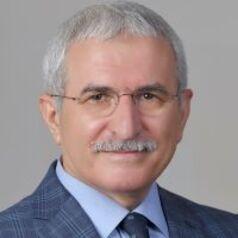
İbrahim Özdemir
Professor of Philosophy, Uskudar University; Visiting Professor, Clark University
Dr Ibrahim Özdemir is professor of philosophy at Uskudar University, Istanbul, an environmental philosopher and Senior Advisor to the United Nations Environment Program (UNEP). He is the Dean of the Faculty of Humanities and Social Sciences at Uskudar University, where he is head of its Forum for Environmental Ethics. He is also visiting assistant professor at the Center for Gender, Race and Area Studies at Clark University. Previously he was director-general at the Department of Foreign Affairs in the Turkish Ministry of Education.
He was a lead member of the drafting team for the Islamic Declaration on Global Climate Change endorsed by the UN United Nations Framework Convention on Climate Change (UNFCCC), and a lead member of the drafting team behind the Al-Mizan Covenant for Earth documented adopted by the UNEP’s Faith For Earth Initiative.
Less ![]()
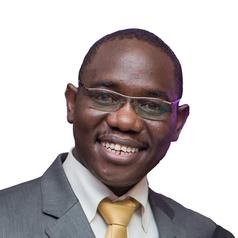
Ibrahim Z. Bahreldin
Associate Professor of Urban & Environmental Design, King Abdulaziz University
Dr. Ibrahim Z. Bahreldin is a Sudanese urbanist and educator with a diverse and interdisciplinary education in architecture, human settlements, urban design, and planning. He earned his degrees from the University of Khartoum (2001), KU Leuven University in Belgium (2003), and Waseda University-Tokyo in Japan (2012). He also enriched his knowledge and skills by attending several international and regional capacity-building and training programs in urban design, city planning, and participatory design.
Ibrahim has a rich and diverse architecture and urban design background, having worked on projects of different scales and contexts in Sudan and Japan. He is a registered architect and planner in the Sudanese Institute of Architects (SIA), the City Planning Institute of Japan (CPIJ), and the Saudi Council of Engineers (SCE). He balances his academic and research pursuits with a dynamic professional practice, collaborating with various NGOs, the private sector, and government agencies as a consultant. He also offers his expertise as an independent architecture and urban planning consultant.
Dr. Bahreldin has a long and distinguished career in teaching, researching, and leading academic institutions. As the head of the Urban Planning and Design department at the University of Khartoum for four years (2015–2019), he pioneered the first Ph.D. program in urban planning in the country. He introduced two master’s programs in urban design and urban planning and management. He also took charge of the Master of Urban Design in Hot-Arid Areas at the Future University in Sudan, a joint program with Venice University. Moreover, he served as the Director of Investment at the University of Khartoum from 2016–2017, where he initiated some vital projects.
Ibrahim is passionate about shaping the future of cities and communities in Sudan and beyond. He helped establish the Sudanese Urban Planning Association (SUPA) and the Sudanese Urban and Regional Planning Association (SURPA), and he currently serves as the country representative of the African Association of Planners. He is also an active member of various global networks and initiatives that promote planning and place-making. He has extensive experience designing, directing, and conducting training programs for professionals who want to enhance their city planning and urbanism skills and knowledge.
Ibrahim is a prolific and influential scholar and practitioner in architecture and urbanism. He serves as an editorial member of several academic journals and has edited some special issues in renowned journals. He has also received many local and international awards, scholarships, and recognitions for his academic and professional excellence. He has published widely on architecture, public engagement, place-making, public space, public art, and activism. He has led and coordinated various research and professional projects in Sudan and Saudi Arabia that focused on master plans, place-making strategies, space production and activism initiatives, and community engagement programs. His academic work, research, and teaching emphasize the importance of creating meaningful and inclusive public places.
Less ![]()
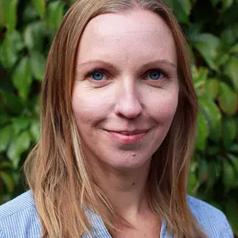
Ida Karlsson
Assistant Professor, Department of Medical Epidemiology and Biostatistics, Karolinska Institutet
I am an assistant professor in genetic epidemiology of ageing, interested in combining genetic and longitudinal designs to understand complex traits.
My primary research aim is to understand how overweight influences risk of age-related diseases, by studying why different forms of overweight have different effects on the risk of dementia, cardiovascular disease, and type-2 diabetes. I am also interested in understanding how geographic circumstances influence late-life health.
Less ![]()

Ida Zinke
PhD candidate at the Institute of Public and Regional Economics, University of Münster
Less ![]()
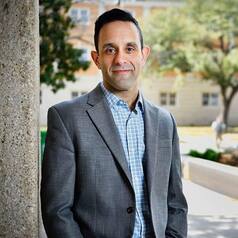
Idean Salehyan
Professor of political science, University of North Texas
I am a Professor of Political Science at the University of North Texas, Executive Director of the Peace Science Society (International), and the co-Director of the Social Conflict Analysis Database project. In addition, I am a Senior Fellow for Immigration Policy at the Niskanen Center in Washington, DC and an Fellow of the the John Goodwin Tower Center for Political Studies at Southern Methodist University.
My research interests are diverse, but most of the time I focus on topics related to international & civil conflict, international migration, and refugee studies. My policy work centers on developing pragmatic, sensible approaches to managing forced migration.
I am the author of, Rebels Without Borders: Transnational Insurgencies in World Politics (Cornell University Press, 2009). My articles appear in journals such as: the American Journal of Political Science, International Organization, International Studies Quarterly, the Journal of Conflict Resolution, the Journal of Peace Research, the Journal of Politics, and World Politics.
Less ![]()
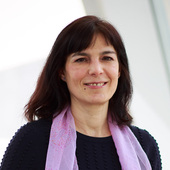
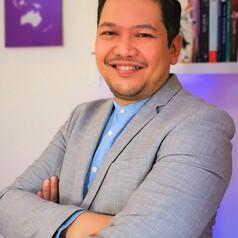
Idil Syawfi
Assistant Professor of International relations, Universitas Katolik Parahyangan
Idil Syawfi is a Faculty Member at the International Relations Program, Parahyangan Catholic University since 2011. His research interests focus on Great Power Politics, Indonesia Foreign Policy and Strategic Studies.
Less ![]()

Idris Mohammed
Conflict Researcher, Department of Mass Communication, Usmanu Danfodiyo University, Sokoto
Idris Mohammed is a conflict researcher, academic & journalist, he is from the department of Mass Communication, Usmanu Danfodio University Sokoto. Idris is a member Conflict Research Network of West Africa and also a member of United State Institute of Peace Nigerian Network of Facilitators writes from northwest region of Nigeria.
He has over 10 years working with Non profit organizations and civil society group in Nigeria like Centre for Democracy and Democracy ( CDD West Africa), YIAGA Africa, CLEEN Foundation, Human Right Watch, Equal Access International, Crisis Group International, United State Institute of Peace (USIP), Institute of Security Studies ( ISS) and many more local and international organizations.
You can reach out to him via his email address [email protected] or twitter handle @Edrees4p
Less ![]()
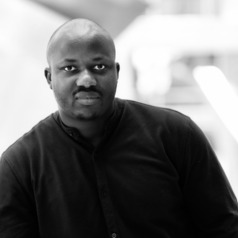
Ifedotun Aina
Senior Researcher and Postdoctoral Research Fellow in the Water and Production Economics Research Unit, University of Cape Town
Dr Aina is a senior researcher and postdoctoral research fellow in the Water and Production Economics Research Unit at the University of Cape Town. His recent experience includes a visiting scholar position at the International Institute for Applied Systems Analysis (IIASA) in Austria. In addition, Dr Aina is a member of the River Basin Modelling Group at the School of Public Policy, University of California, Riverside.
Dr Aina has developed an active research portfolio at the intersection of water and environmental economics, agricultural economics, and behavioral economics. He also has research interests in various sub-fields of development economics, particularly as they relate to environmental and resource economics. Dr Aina is passionate about employing state-of-the-art econometric techniques and applied economic theory to address urgent questions in water governance and development policy.
Prior to his PhD, Dr Aina graduated with an MSc in agricultural economics with distinction from the University of Ilorin, and was awarded an ARISE fellowship through the Intra-Africa academic mobility scheme of the European Union.
Less ![]()

Ignacio Blanco-Alfonso
Catedrático de Periodismo de la Universidad CEU San Pablo (Madrid, España), Universidad CEU San Pablo
Catedrático de Periodismo en la Universidad CEU San Pablo, a la que se incorporó en el año 2000, acreditado por ANECA (2007) y por ACAP (2005), y con tres sexenios reconocidos por CNEAI.
Se doctoró con una tesis sobre los géneros periodísticos en la obra de José Ortega y Gasset (premio extraordinario de Doctorado, 2003). Especialista en el pensamiento y la obra del filósofo madrileño, formó parte del equipo de edición e investigación de sus Obras completas.
Es el director del Máster Universitario en Periodismo Cultural, del Máster en Verificación digital, Fact-Checking y Periodismo de Datos (CEU & Newtral), y de Doxa Comunicación. Revista interdisciplinar de Estudios de Comunicación y Ciencias Sociales.
Es Coordinador de Investigación y Posgrado de la Facultad de Humanidades y Ciencias de la Comunicación, e Investigador Principal del proyecto competitivo “Nuevos escenarios de vulnerabilidad digital: alfabetización mediática para una sociedad inclusiva” (PROVULDIG-2. Ref. H2019/HUM5775, 2020-2022), financiado por la Comunidad de Madrid y el Fondo Social Europeo.
Ha sido visiting scholar en las universidades de Génova (Italia) en 2007, del Pacífico (Lima, Perú) en 2015 y de Cambridge (Reino Unido) en 2017. Es life member del Clare Hall College de la Universidad de Cambridge, Fellow de la Foundazione Bogliasco (Génova, Italia), miembro de la Sociedad Española de Periodística (SEP), de la Asociación de Comunicación Política (ACOP) y de la European Communication Research and Education Association (ECREA).
Less ![]()

Ignat Kulkov
Postdoctoral researcher, EDHEC Business School
Analyzing the future landscape with critical insights and creating plausible scenarios. Join me in shaping the future with technology - one research at a time!
Advancing the frontier of new technologies, leveraging the power of AI, virtual and augmented reality, digital twins and beyond, to create sustainable value for various industries (health care, drug development, manufacturing, construction, etc.).
Less ![]()
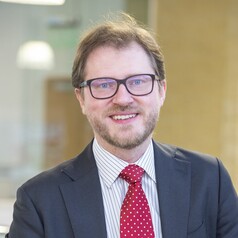
Igor Goncharov
Professor of Accounting, LUMS Doctoral Programmes Director, Lancaster University
Igor Goncharov holds a position of Professor of Accounting at Lancaster University Management School. He previously worked at the University of Amsterdam in the Netherlands and at the WHU – Otto Beisheim School of Management in Germany. Igor Goncharov’s research focuses on the economic consequences of financial reporting in different settings including firms, investment companies, and central banks. Igor Goncharov’s work has been published in leading international journals. He is the Associate Editor of Accounting and Business Research, and has received numerous awards for excellence in research and teaching.
Less ![]()
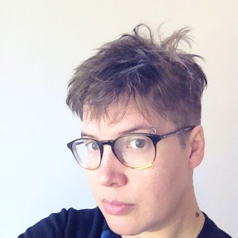
Ika Willis
Associate Professor in English Literatures, University of Wollongong
I have a BA in Classics from Oxford University and postgraduate qualifications in Cultural Studies from the University of Leeds. Before moving to Wollongong, I worked for seven years as the Lecturer in Reception at the University of Bristol where I directed the MA in Reception and Critical Theory. I work across the disciplines of Classics, literary studies, Cultural Studies, and fan studies, specializing in reception theory: how readers and audiences make sense of, and make use of, texts.
I am currently the Head of School of Humanities & Social Inquiry.
Less ![]()
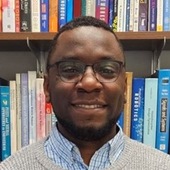
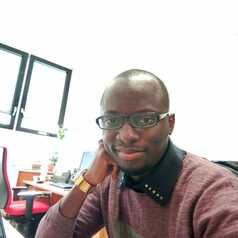
Ikechukwu Ejekwumadu
Postdoctoral Fellow, Institute of Sports Science, University of Tübingen
Dr. Ikechukwu Ejekwumadu is a Postdoctoral Fellow at the Institute of Sports Science, University of Tübingen. His work examines a wide range of topics in sport sociology, including but not limited to youth and aspiring athletes, football migration, otherness and athletes with a migration background, and cultural transitions in sports. His research work has been published in leading peer reviewed international journals such as 'European Journal for Sport and Society' and 'Sport in Society'.
Less ![]()
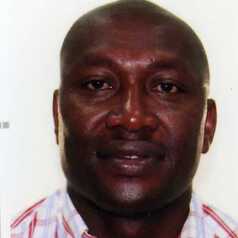
Ikekhwa Albert Ikhile
Postdoctoral Fellow, University of South Africa
I hold a PhD in public health and am passionate about mitigating the spread of HIV/AIDS among the most vulnerable populations. As a researcher at the University of South Africa, I have gained valuable professional experience and expertise in conducting research. My focus is on social determinants of health and their impact on marginalised populations infected or affected by HIV/AIDS, such as LGBTQI+ populations, adolescent girls and young women, and men who have sex with men.
My qualifications, both academic and professional, equip me with the knowledge and skills necessary to contribute significantly to the academic community and address pressing societal issues related to healthcare accessibility for marginalised groups.
Less ![]()

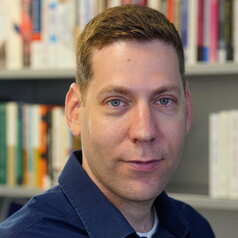
Ilai Z. Saltzman
Professor and Director of the Gildenhorn Institute for Israel Studies, University of Maryland
Dr. Ilai Saltzman is the Director of the Gildenhorn Institute for Israel Studies at the University of Maryland, College Park. His scholarship and teaching focus on international security, Israeli foreign and security policy, US foreign policy, and political psychology. Dr. Saltzman is the author of Securitizing Balance of Power Theory: A Polymorphic Reconceptualization (2012). He has also written numerous scholarly articles and book chapters, and commentaries in the Los Angeles Times, Ha’aretz, The Jerusalem Post, and other prominent outlets.
Dr. Saltzman earned his Ph.D. in International Relations in 2010 from the University of Haifa and was a postdoctoral research fellow at the International Security Program (ISP), Belfer Center for Science and International Affairs, John F. Kennedy School of Government, Harvard University (2009-2010).
Before he arrived in College Park, Dr. Saltzman was the Israel Institute’s Associate Director for Academic Program. In the past, he served as a professor of government at Claremont McKenna College where he taught classes in International Relations, Israeli foreign and security policy as well as US foreign policy. He had also taught at the Hebrew University of Jerusalem’s International Relations Department and the Rothberg International School (RIS), and Tel-Aviv University’s Political Science Department.
Less ![]()
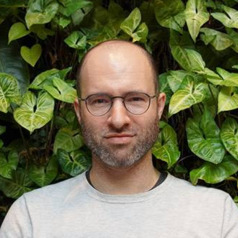
Ilan Strauss
Head of Digital Economy Research, UCL
Senior Research Associate, UCL IIPP. Leading research team on digital rents at UCL, IIPP, sponsored by the Omidyar Network. Published influential papers on algorithmic rents.
Visiting Associate Professor, University of Johannesburg.
Dr. Ilan Strauss is a senior research associate at UCL’s Institute for Innovation and Public Purpose (London), where he leads the digital economy research team with Mariana Mazzucato (principal investigator) and Tim O’Reilly – funded by the Omidyar Network. His work investigates new theories of harm and competition in digital markets, with an emphasis on Big Tech’s digital platforms and ecosystems. Ilan is also the receipt of an Economic Security Project grant (jointly with Dr. Jangho Yang) looking at the role of acquisitions in Big Tech attaining dominance in artificial intelligence (AI) innovation.
llan is a Visiting Associate Professor at the University of Johannesburg, South Africa (industrial policy). Previously, he taught macroeconomics at Rice University (Jones Graduate School of Business) and at New York University (Division of Applied Undergraduate Studies). Ilan has consulted for Airfinity (London), UNCTAD (Investment Division), the African Development Bank (AfDB), UNIDO, the ILO, and the Southern African Development Community (SADC).
Ilan holds a Ph.D in economics from the New School for Social Research (New York) and an MSc in economics from SOAS (University of London, First Class). For recent information see: www.ilan-strauss.org
Less ![]()
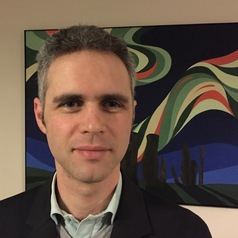
Ilan Zvi Baron
Professor of International Political Theory, Durham University
Ilan Zvi Baron is a Professor of International Political Theory at Durham University, where he is also Co-Director of the Centre for the Study of Jewish Culture, Society and Politics. He has held visiting posts at the Hebrew University of Jerusalem and the University of British Columbia. His most recent books are “How to Save Politics in a Post Truth Era” and “Obligation in Exile: The Jewish Diaspora, Israel and Critique.”
Less ![]()
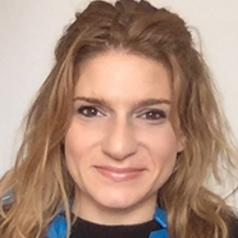
Ilana Webster-Kogen
Reader, SOAS, University of London
Ilana Webster-Kogen is the Joe Loss Reader in Jewish Music at SOAS, University of London. Her first book, Citizen Azmari: Making Ethiopian Music in Tel Aviv, was published in 2018 with Wesleyan University Press in the Music/Culture series. The book won the Society for Ethnomusicology's Jewish Music section publication prize in 2019. Her work on the music of the Ethiopian diaspora has been published in academic journals such as Ethnomusicology Forum, Africa and Black Diaspora, and the Journal of African Cultural Studies. At SOAS, Ilana teaches classes on Jewish and Middle Eastern music, hip hop, and critical/cultural theory.
Less ![]()

Ilaria Di Gioia
Senior Lecturer in American Law and Associate Director of the Centre for American Legal Studies, Birmingham City University
Dr. Ilaria Di Gioia is an academic with expertise in the American Constitution, American federalism and intergovernmental relations.
She is the Inaugural Philip Davies Fellow of the Eccles Centre for American Studies at the British Library and she is affiliated to the Centre for Constitutional Design at the Sandra Day O'Connor College of Law at Arizona State University (ASU).
Her research currently focuses on local government and is aimed at exploring solutions to intergovernmental conflicts at federal and state level. She uses mixed research methods from political science and law to study constitutional change. She has published and disseminated her research at international conferences in Europe, the United States and South America. She is editor of the British Journal of American Legal Studies.
She studied Public Administration at Sapienza University in Rome, followed by a PhD in American Constitutional Law at Birmingham City University. She previously worked at the United Nations System Staff College in Turin, Italy and at the Italian Embassy in Washington, DC.
Less ![]()

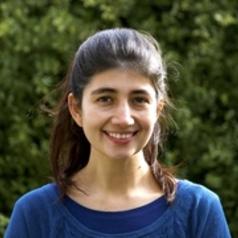
Iliana Medina
Lecturer in Ecology, The University of Melbourne
My research interests combine the worlds of behavioural ecology and macroevolution. I am passionate about understanding the evolution of animal behaviours and the adaptations that animals have to their habitat.
Why have these strategies evolved? How do they affect the evolutionary destiny of the species? For most of my research I combine work in the field, laboratory or museum with broad-scale comparative analyses. This integrative approach allows us to understand in depth the evolutionary drivers of the diversity of forms and colours we see in nature.
Less ![]()

Ilias Kapoutsis
Associate Professor of Management, Athens University of Economics and Business
Ilias Kapoutsis is Associate Professor of Management at the Athens University of Economics and Business (AUEB). His research focuses on workplace political behavior, leadership, and social influence, examining the motivations driving these behaviors and the conditions that ensure their effectiveness. His work has been published in leading journals, including the Journal of Management, Journal of Applied Psychology, Human Relations, and Journal of Organizational Behavior. He also serves on the editorial team of Academy of Management Perspectives. He has led and contributed to numerous research projects, such as national strategies and international studies, with a particular emphasis on informing policy-making and organizational practices.
Less ![]()
- Market Data























